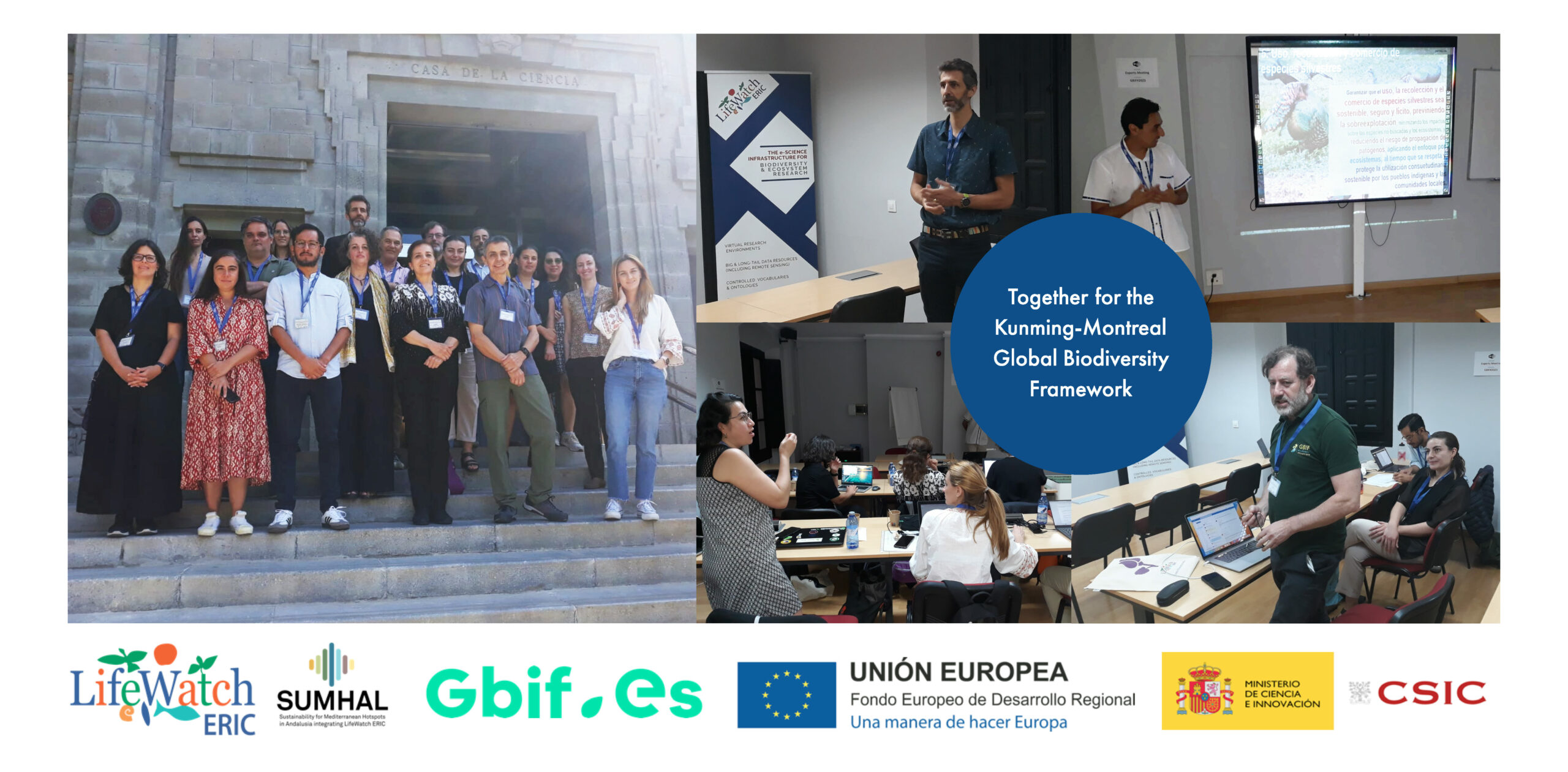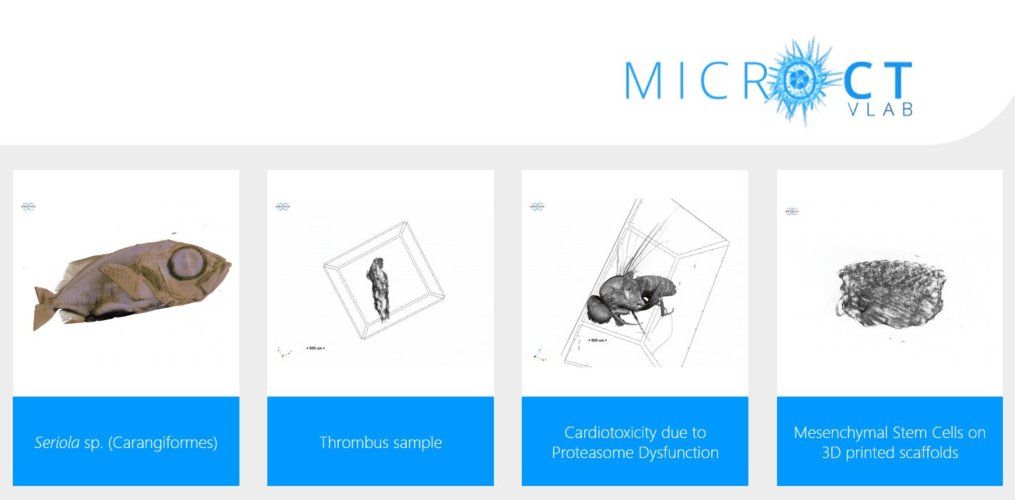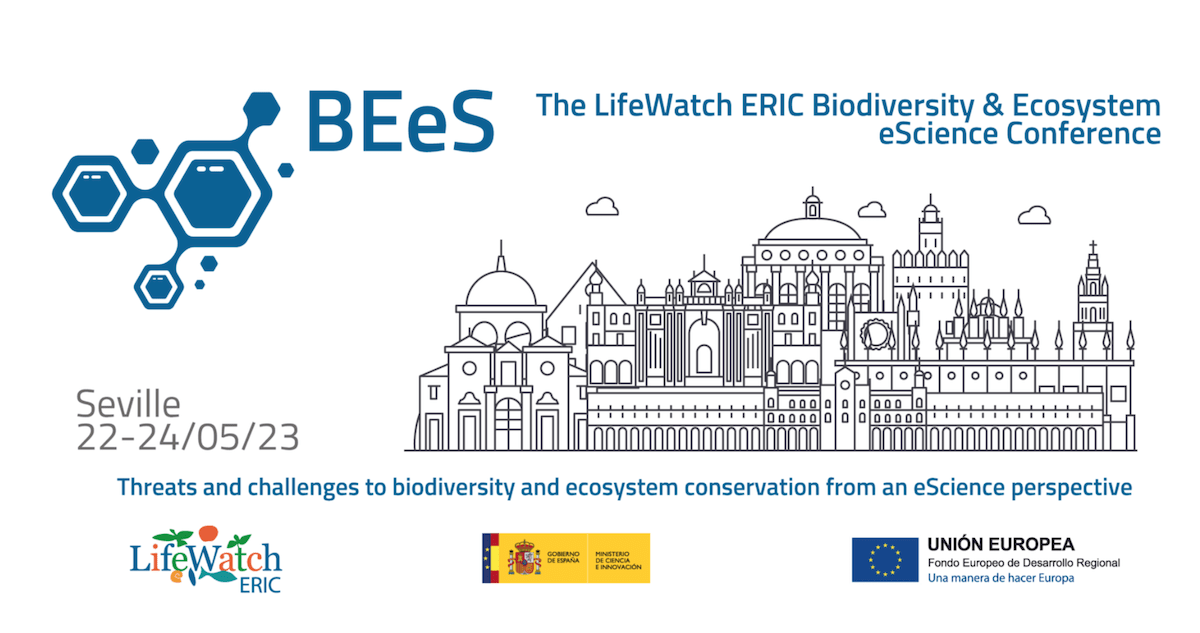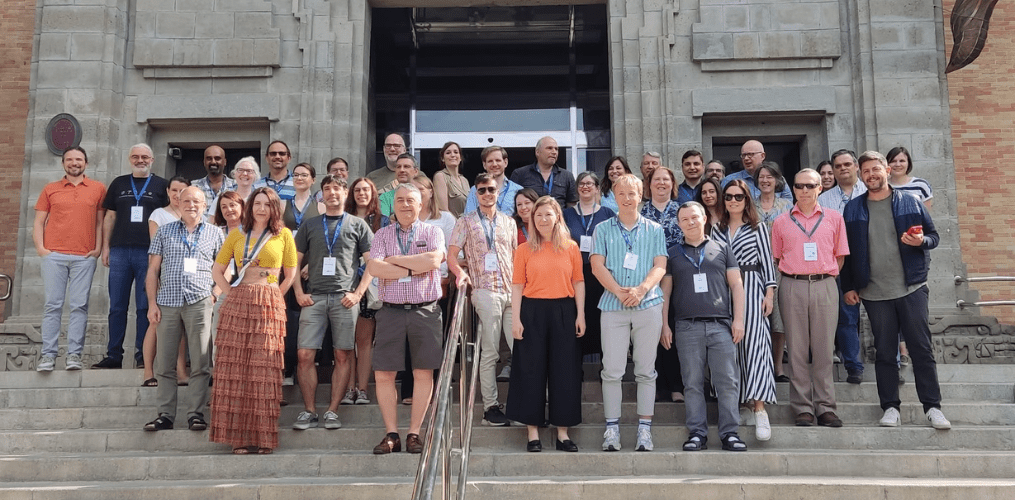LifeWatch ERIC and the Global Biodiversity Information Facility (GBIF) are meeting from 30 May to 2 June, 2023, to support the Kunming-Montreal package of decisions adopted by the Parties to the Convention on Biological Diversity, approved at the UN Biodiversity Conference in Montreal, in December 2022.
Continue readingBioinspired robots in Lecce: MAPWORMS Plenary meeting
Micro-CTvlab and MedOBIS Repository were present at the plenary meeting of the MAPWORMS project in Lecce, on 15-16 May 2023. MAPWORMS is a Horizon Europe project which aims to propose robots that are inspired by simplified forms of marine Annelida, able to perform tasks in response to environmental stimuli, thus adapting to the working environment with a shape-morphing strategy with unique features in terms of powering and eco-friendliness.
Micro-computed tomography (micro-CT) is being used to visualize the morphological and anatomical features of the annelids. These data will also be used to create a virtual gallery in the Micro-CTvlab, a virtual laboratory which was developed during the LifeWatch Greece project and offers virtual galleries and online tools for the 3D manipulation of micro-CT datasets.
Furthermore, distributional/georeferenced data produced during the MAPWORMS project, will be deposited in the MedOBIS Repository, which is the Mediterranean Node for OBIS and is hosted by the IMBBC, HCMR in Crete. Its development started in 2003, and it was operational by 2005 as a Tier 3 of EurOBIS. Under the European projects EMODnet Biology and LifeWatchGreece, it became a Tier 2 node and extended to cover the entire Mediterranean Sea. Mrs Dimitra Mavraki has been appointed as the Data Manager of the MAPWORMS project, and presented the Data Management Plan, in which several FAIR repositories, including MedOBIS, have been proposed to the partners in order to deposit their data.
The MAPWORMS project has received funding from the European Union’s Horizon Europe research and innovation programme under grant agreement No 101046846.
Biodiversity and ecosystem conservation from an eScience perspective: the LifeWatch ERIC community meets in Seville
The LifeWatch ERIC family is meeting again, for the first time in four years, at the Biodiversity and Ecosystem eScience Conference in Seville, Spain, this 22-24 May 2023. Hosted by the University of Seville, not far from LifeWatch ERIC’s headquarters, the bustling reunion allows 150 participants from LifeWatch ERIC, its National Nodes, and the broader biodiversity and ecosystem research community to present their work in person. The enthusiasm is tangible, and LifeWatch ERIC is glad to announce a rich programme, featuring 65 presentations from 13 different countries.
During those three days, presenters guide us through the advanced, transdisciplinary and challenging frontiers of their field of research: from ecosystem monitoring in mountain areas, such as in the Sierra-Nevada high-mountain protected area case study, to DNA-based biodiversity monitoring and environmental information to study the communities of freshwater ecosystems in western Andalusia. The most advanced eScience tools are presented, ranging from those designed to manage and control Alien Species or to assess ecological health and status of ecosystems, to e-services and Virtual Research Environments (VREs) enabling a deeper understanding of biodiversity and ecosystem responses to climate changes. Through this lens, BEeS 2023 touches a variety of topics of the uttermost importance for the current research landscape, as well as for decision makers and society as a whole, because of the massive socio-economic impacts these topics have in our daily lives.
Planned to start on the International Day for Biological Diversity and under the overall theme of ‘Threats and challenges to biodiversity and ecosystem conservation from an eScience perspective’, the conference programme is divided into seven session topics across the three days, each making reference to the Infrastructure’s VREs and online tools and services:
- Major threats to the Earth’s biodiversity and ecosystem health
- Macroecological and biogeographic approaches to biodiversity conservation
- Ecosystem and habitat mapping
- Animal biology and behavioural traits
- Biodiversity observation “System of systems”
- Biodiversity and ecosystem responses to climate change
- Natural capital and the ‘One Health approach.
A Round Table on ‘Biodiversity and its management, conservation and recovery in a changing biosphere’ organised on Monday afternoon, featuring in the panel Carl Beierkuhnlein (University of Bayreuth, Germany), Meelis Pärtel (University of Tartu, Estonia), Fernando Rodríguez (University of Seville), and Juan José Vergara (University of Cadiz) is chaired by Christos Arvanitidis and Peter van Tienderen, respectively LifeWatch ERIC Chief Executive Officer and Director of the Virtual Laboratory and Innovations Centre in Amsterdam. The Round Table, and in fact the whole conference is live-streamed on the LifeWatching WebTV channel.
Particularly relevant is the Institutional Address at 09:00 on Tuesday 23 May (CEST) by José Carlos Gómez Villamandos, Regional Minister of Universities, Research and Innovation, from the Junta de Andalucía, and Christos Arvanitidis. The conference is closed by D. Manuel Felipe Rosa Iglesias, Vice-Dean of Technological Transference of University of Seville, Christos Arvanitidis, Alberto Basset, LifeWatch ERIC Service Centre Director, and Peter van Tienderen.
Real time information on presentations is also available on the LifeWatch ERIC Twitter feed, except for the guided tour of the University’s Rectorado and the Real Alcázar Gardens on the first night. You have to be there in person for that.
Click here for the conference mini-site, the conference programme and the LifeWatching WebTV live streaming.
LifeWatch ERIC at the ALL-Ready Second Regional Workshop
On 11 May, LifeWatch ERIC hosted, at its ICT Core in Seville, the second regional workshop of the European project ALL-Ready: “Accelerating Agroecology Transition: Your potential role and benefits of contributing to a European network of Living Labs and Research Infrastructures”.
LifeWatch ERIC is is one of the main partners in this highly strategically relevant project. Its Agroecology team, led by José Manuel Ávila, Daniel Caro and Iria Soto, coordinated the morning session of the workshop together with Gerald Schwarz (Thünen Institute), Isidora Stojacic (BioSense Institute), Ophélie Bonnet (INRAE), Isabelle Couture (ENoLL – European Network of Living Labs), Jo Bijttebier and Sylvie Fosselle (ILVO Living Lab Agrifood Technology).
In the presentation, Gerard Schwarz marked the objectives of the implementation plan, stressing the importance of ensuring relevance for actors across Europe and specifying that this work in progress is to be finalised in early autumn 2023:
- To provide a structured framework to sustainably implement, monitor and adapt the European Network in the long term;
- To ensure its effective contribution to the partnership on Agroecology;
- To deliver benefits to the agroecological community in Europe.
During the workshop, the participants formed several groups to exchange experiences and discuss solutions about the challenges of Agroecology Living Labs and Research Infrastructures, and to explore possible roles and contributions of the European Network, in relation to:
- Thematic priorities of the Network;
- Communication, networking and demonstration activities;
- Funding requirements and strategies.
The ALL-Ready workshop served also to advance the production of ideas and proposals to further improve the understanding of which thematic areas and what kind of measures and activities, as part of the European Network, would be especially useful.
The coordinator of the session, Gerard Schwarz (Thünen Institute of Farm Economics), led the working day to discuss:
▪ Insights into topics, themes and issues that the European Network should address;
▪ Insights into type of communication and networking activities that are particularly needed;
▪ Insights into practical solutions foe addressing funding gaps;
▪ Insights into capacity building, including regional gaps in competences, and the role of local actors to support development of competences.
The perspectives and recommendations of the participants will be taken into account to for the implementation plan of a European Network.
The CEO of LifeWatch ERIC, Christos Arvanitidis, intervened in the closing session. He explained that it is necessary to build all together the European Network of Agroecology Living Labs and Research Infrastructures: “And as a Research Infrastructure focused on biodiversity and ecosystem, LifeWatch ERIC aims to support the community of practices to provide science-based evidence about agroecology practices and contribute to knowledge and data sharing to demonstrate and make visible its added value and impacts”.
Christos Arvanitidis also stated that LifeWatch ERIC is working to provide digital tools / e-Services to facilitate the adoption of agroecology practices based on collaboration with the different stakeholders (researchers, farmers, policymakers and citizens), but also in association with other Research Infrastructures. And he especially stressed that: “In the coming years, in the EU Partnership on Agroecology, LifeWatch ERIC will lead the design and implementation of a conceptual framework to monitor the AE transition and the consequent impacts. We encourage to work with us, as CoP, to co-design the specific tools that fit your needs to all together contribute to the make the European agricultural sector more sustainable, resilient and responsive to societal and policy demands”.
Future workshops of ALL-Ready will be held today 12 May, in Budapest, and on Monday 15 May, in Frankfurt. All the efforts made are directed towards the final conference, which will take place on 27 September 2023, in Brussels.
LifeWatch ERIC at the EOSC Future General Assembly and Project Meeting
On 3–5 May, LifeWatch ERIC participated in the EOSC Future General Assembly and Project Meeting, held in Seville, Spain. The event was hosted by LifeWatch ERIC in Casa de la Ciencia, where all the entities who are the backbone of EOSC Future gathered.
Christos Arvanitidis, LifeWatch ERIC CEO, is very pleased with the level of participation and cooperation shown in the various sessions of this meeting: “Our assessment is very positive and increases expectations regarding the achievement of the objectives for the development of this platform”.
On the first day of the Meeting, LifeWatch ERIC’s CEO, Christos Arvanitidis, opened the first session by welcoming the participants and explaining the objectives of WP6, which is the Work Package coordinated by LifeWatch ERIC. Then Sally Chambers from Dariah (Digital Research Infrastructure for the Arts and Humanities) hosted the session “Onboarding and Integration: Challenges & Solutions”, indicating two main objectives:
- To clarify the differences between the five resource types which can be on boarded into the EOSC-Exchange;
- To explore the Resource Providers have faced when onboarding and integrating their resources into EOSC Exchange and use the methods of ‘user stories’ to explore how to ease the process.
The second part of the session was focused on “Implementing the Science Projects: Current status and next steps”, and was led by Cristina Huertas, LifeWatch ERIC International Initiatives and Project Manager. This second part of the session identified five main objectives:
- To identify the Risks of the technical implementation of Science Projects;
- To review the status of Scientific Documents;
- To explore the way Science Projects could consider their sustainability after the end of the project;
- To engage and satisfy the users;
- To review the status of the webinars provided by the ten Science Projects to date.
On the first day of the General Assembly, forty people have participated in person, in total, and other representatives of the consortium have also intervened livestream. Among others, Yannis Ioannidis, Greek delegate to the European Strategy Forum on Research Infrastructures (ESFRI), member of the ESFRI Executive Board, and ESFRI representative to the e-Infrastructures Reflection Group (e-IRG). As coordinator of EOSC Future, Yannis Ioannidis chaired the assembly. A total of thirty-five entities have also been integrated into the EOSC Future consortium.
The first day of EOSC Future General Assembly has been moderated by Ron Dekker, associate consultant at Technopolis Group Belgium (where he coordinates the Open Science activities) and EOSC Future Project Leader, and Lennart Stoy, senior consultant in Technopolis Group Belgium.
On the second day of EOSC Future General Assembly and Project Meeting, Agis Evrigenis and Sophie Viscido, from Technopolis Group, led the session dedicated to the overview of the project implementation status, challenges and next steps. Then Paolo Manghi (Openaire), Roksana Wick (ACK Cyfronet), Mark Van de Sanden (Surf / Eudat) and Klaas Wierenge (Géant), coordinated the session about new and upcoming tech capabilities and led a short presentation and demos by the product teams (marketplace, providers, portal, helpdesk, etc.). EOSC Architecture and Interoperability Framework has also been presented, discussing tech planning towards project end and capabilities to be demonstrated at the month 30 review.
LifeWatch ERIC, with Christos Arvanitidis, Cristina Huertas, and Ana Mellado, led a session about the overview status of Science Projects. The topics covered included: progress to date, resources’ integration status and plans, lessons learned as piloting EOSC and post project sustainability.
Later in the afternoon, LifeWatch ERIC presented a scientific case in progress: Implementation ARMS workflow. This early-warning system for marine biological invasions allows non native invasive especies (NIS) researchers and stakeholders to identify newly arrived NIS, track the migration of already known NIS and monitor the composition of hard-bottom communities over long periods. This system is based on ARMS data (Autonomous Reef Monitoring Structure), which are quality controlled and open access based, permanently stored (Marine Data Archive) along with their metadata (IMIS, catalogue of VLIZ), ensuring fairness.
LifeWatch ERIC CEO, Christos Arvanitidis, introduced Joaquín López Lérida, LifeWatch ERIC Data e-Science Management Plan & BlockChain Officer, who also explained, whit a remote online presentation, how the integration of the platform is being done with EOSC. In terms of authentication, the integration has been confirmed to be ready for internal consumption of all LifeWatch ERIC Tesseract Services, including LifeBlock.
In the session about real-life demonstrations of use cases, (in view of the month 24 review), which has been led by Matthew Viljoen, another of the presentations that has aroused interest is the one presented by Carolina Simón, from the National Center for Biotechnology (Spain), who exposed the case of integration of Covid-19 Data with EOSC. On the other hand, Elisa Cauhé (EGI Foundation), presented results and next steps of the EOSC Digital Innovation Hub (DIH): eight projects collaborations, twenty-three supported pilots, and more than fifty funding opportunities.
The last day of EOSC Future General Assembly and Project Meeting was, instead, focused on addressing aspects such as EOSC Procurement, EOSC as a Data Space and also RDA Open Calls. The closing session revolved around updates provided by WP10 about the progress made for the project.
The EOSC Future Meeting held in Seville for three days has concluded with a standing ovation from all the participants to congratulate the LifeWatch ERIC team for the quality of their work as host of the meeting.
Ron Dekker, EOSC Future Project Leader, called on all the entities participating in the consortium to intensify the implementation of their work packages, in order to finish the last phase of the project in the best possible way. From 20-22 September 2023, the EOSC Symposium will take place in Madrid, in the context of the Spanish Presidency of the Council of the European Union. In the context of the EOSC Future project, the EOSC Symposium will also be a critical platform to showcase project achievements and key exploitable results.




